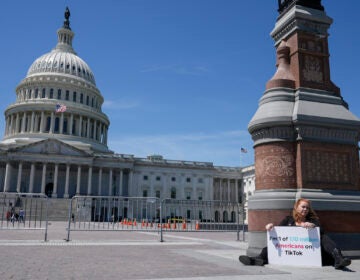Raise debt ceiling? Obama has not made the case.
Both the U.S. and Greece are in the midst of crises over the size of their respective national debts. A common characteristic of both debt crises is popular anger at the government for financial mismanagement resulting in additional burdens on the middle and working classes.
In Greece that anger is manifest in anti-government demonstrations aimed at austerity measures enacted to secure emergency funding from Greece’s European Union partners. No one believes such austerity measures or emergency funding will solve Greece’s chronic national debt which now exceeds 155% of GDP, and which is projected to increase to 170% of GDP by next year.
In the absence of agreement among Europe’s politicians on who should assume the burden of Greece’s debt, Europe’s debt-holding banks or its over-taxed taxpayers, Greece’s eventual default on its growing debt still appears inevitable.
The current U.S. debt ceiling of $14.3 trillion is approaching 100% of U.S. Gross Domestic Product which was $14.7 trillion in 2010. The political impasse over raising the debt ceiling is effectively over whether and under what circumstances to allow the national debt to exceed 100% of GDP, moving the U.S. closer to the economic status of Greece. The rising national debt and annual budget deficit were cited by Standard & Poor’s on April 18 when that credit rating agency downgraded the U.S. credit outlook to negative.
President Obama warned on Thursday that failure by Congress to raise the $14.3 trillion debt ceiling by August 2 would have “significant and unpredictable” impact on capital markets and the U.S. economy. But recent polls by Gallup, the Associated Press, and the Wall Street Journal all show that the American people are not supportive of increasing the ceiling on the national debt.
Strengthened by those polls, Republicans in Congress have refused to raise the debt ceiling without simultaneous spending cuts to reduce the deficit, and no increase in any taxes. Democrats are getting nowhere with their offer of spending cuts tied to raising the debt ceiling and raising revenue by closing tax loopholes and raising tax rates on high-income taxpayers.
White House contender Michele Bachmann accuses President Obama of “scare tactics” and has announced she will vote against raising the debt ceiling without a big spending cut and no tax increases. She and other Republicans believe that limiting total U.S. debt to the current $14.3 trillion ceiling will not on August 2 result in cessation of government payments and default on government debt as the Obama administration suggests could happen. Instead, they believe the government can prioritize its obligations, like any family in financial difficulty, and make the payments necessary to maintain its credit rating while deferring others.
The political deadlock over raising the debt ceiling is attributable to three failures on the part of the Obama administration. First, the administration has failed to clearly explain what will happen if the debt ceiling is not raised. This may be because they honestly don’t know. President Obama’s description of the consequences as “unpredictable” leaves open the possibility that the consequences could be positive. “Good news! The Americans are going to spend and borrow less and live within their existing debt limit after all!”
Second, the administration has failed even to suggest that its proposed raising of the debt ceiling will be the last one, instead of just the most recent of many authorizations for more debt along the financial road to ruin that Greece has already traveled.
Third, and perhaps most importantly, the administration has failed to address the fear among middle-class taxpayers that they will in the end be stuck with the consequences of additional national debt, either in the form of higher taxes, or inflation, or recession and more unemployment. Americans have learned from the recent financial crash that the rich and powerful money-lending class always gets paid, and that government is its collection agent, even if the moneylenders themselves caused the financial crisis.
AIG’s foolish credit default swaps got paid in full, 100 cents on the dollar. Goldman Sachs profited from the securitization of real estate debt and went merrily on its way. No one on Wall Street went to jail, and bonuses are at record highs. The credit rating agencies are still in business and paying bonuses despite their horrendous calls on securitized real estate debt. The middle and working classes end up paying the price for everything that goes wrong.
The burden of proof always lies with the proponent of doing anything. President Obama and his administration have failed to satisfy that burden for raising the debt limit.
They have also been unpersuasive in denying that there is any alternative to raising the debt limit. Maybe Bachmann is right that we can live within the existing debt limit by prioritizing which of our obligations must be paid first. Maybe we can cut spending enough to stay within the existing debt limit by ending our wars in Iraq, Afghanistan, and Libya which are now paid for with borrowed money.
Soon Greece will provide yet another alternative, simply defaulting on its debt, refusing to pay the foreign moneylenders, and learning to live within its means without any future foreign borrowing, as Argentina had to do after defaulting on its debt in 2002. That’s what happens when a nation’s debt becomes too large.
WHYY is your source for fact-based, in-depth journalism and information. As a nonprofit organization, we rely on financial support from readers like you. Please give today.




